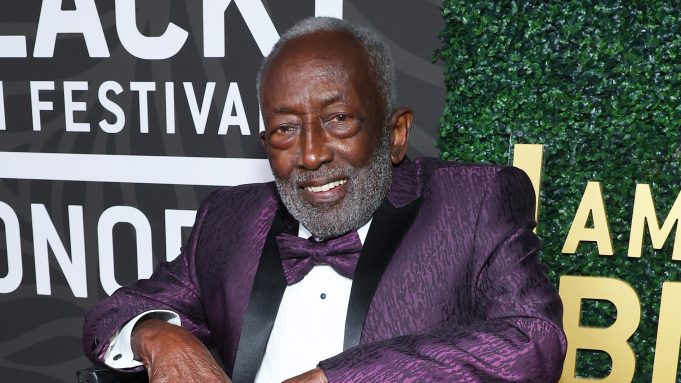Don Lemon’s CNN Departure: A Clash with Cancel Culture
Don Lemon Leaves CNN: The Battle Against Cancel Culture
In a media landscape where opinions fly around faster than a ping pong ball at a family reunion, Don Lemon’s recent departure from CNN has stirred up a storm. You might be wondering, what happened? Was it a clash of personalities, an ego trip, or something deeper tied to the rising tide of cancel culture? Let’s dive deep into this hot topic and unravel the chain of events that led to Lemon’s exit.
The Stage is Set: Who is Don Lemon?
Before we get into the meat of it, let’s set the scene. Don Lemon is not just any news anchor; he’s been a prominent face on CNN for over 17 years! With his charismatic style and no-nonsense approach, he’s built a reputation for tackling hot-button issues from race relations to politics. However, with fame often comes controversy, and Lemon’s career has been anything but smooth sailing.
A Journey Through Triumphs and Trials
Lemon’s rise in the media world is a nuanced narrative. He has reported on significant historical events and has been vocal about inequalities, especially regarding race and gender. His authenticity has appealed to many, while his outspoken views have ruffled feathers, leading some to label him as divisive. Here is a breakdown of the high and low points of his career:
- Significant Coverage: Lemon has covered major events like Hurricane Katrina and the Black Lives Matter movement, bringing necessary attention to these causes.
- Award-Winning Journalist: He’s earned multiple awards for his journalistic contributions, showcasing his dedication to the craft.
- Controversial Comments: From discussing the recklessness of some politicians to weighing in on sensitive racial issues, his comments have often landed him in hot water.
So, what finally triggered his exit from CNN? Well, grab your popcorn; it’s all tied up with the notion of cancel culture.
The Cancel Culture Phenomenon
In recent years, cancel culture has become a buzzword—though, let’s be honest, it feels more like a shadow looming over public discourse. This phenomenon is characterized by a quick and often harsh backlash against individuals who say or do something that the public perceives as offensive.
Picture this: you’re at a party, and one guest says something out of turn. Next thing you know, they’re canceled from the group chat faster than you can say, “Wait, what?” The same applies to social media and traditional media outlets, where public opinion can turn on a dime.
The Double-Edged Sword of Social Media
The rise of social media platforms has empowered audiences to voice their opinions, often leading to rapid calls for accountability. On the one hand, this can usher in much-needed changes; on the other hand, it can lead to mob-like behavior, where nuanced discussions get drowned out by a cacophony of outrage.
Have you ever posted something just for your friends to have it turn into a full-on debate? Yep, social media can be a wild ride! And in this climate, one misstep can spiral out of control—something that Lemon has experienced firsthand.
What Went Down at CNN?
So, let’s get to the nitty-gritty of Don Lemon’s departure from the iconic news network. It seems that his exit wasn’t just a whim; it was a culmination of events that highlighted the ongoing struggle between free speech and the cultural landscape.
Clashes with CNN’s Leadership
In the months leading up to his exit, Lemon often found himself at odds with CNN’s management and editorial staff. As an outspoken personality, he wasn’t afraid to challenge the status quo. However, whether through his opinions or editorial choices, it became increasingly clear that there was friction.
Just think of it like a band where different musicians start playing different songs. Chaos ensues! CNN, a network that thrives on maintaining a specific brand image, began feeling the heat, leading to a reshuffling of priorities.
Outspoken on Sensitive Issues
One of the pivotal moments in the timeline leading to Lemon’s departure was his stance on race relations and politics, which often ignited heated debates. While his timing brought attention to these topics, it also resulted in backlash from various viewer demographics.
Lemon’s comments surrounding the Black Lives Matter movement and other social justice issues drew both support and ire. On one side, his supporters praised him for speaking out. On the flip side, critics argued his views did little for constructive dialogue.
The Final Straw
But what really pushed Lemon out of the door? Rumors have swirled around several incidents, leading to speculation about whether his exit was voluntary or a forced decision.
A Comment that Went Viral
One comment in particular sparked outrage and was widely disseminated by various media outlets. His remarks about political figures during a live broadcast drew a significant backlash, compelling CNN to intervene. Imagine a rubber band stretched to its limit—at some point, it’s going to snap!
The Public’s Reaction
The public is an unpredictable entity. While a segment of viewers rallied to defend Lemon, others clamored for his dismissal from CNN. This tug-of-war can create an immense pressure cooker environment for any network, leading executives to make tough decisions.
Broader Implications: Is Cancel Culture Here to Stay?
With Lemon’s departure, it’s clear that the repercussions of cancel culture resonate beyond individual careers. This incident raises critical questions about the future of media and free speech.
The Role of Media Outlets
How do media outlets balance the demands of their audience with the responsibility of providing a platform for diverse perspectives? It can feel like walking a tightrope! Should they toe the line of popular opinion or allow their personalities to express candid thoughts—even if they stir the pot?
The Impact on Journalistic Integrity
It’s essential to remember that journalism thrives on inquiry and discussion. However, with cancel culture on the rise, how will this affect the willingness of media figures to challenge prevailing narratives? Our media landscape could shift significantly, potentially diluting the essence of debate and dialogue—a heart-wrenching thought for the future of democracy.
Conclusion
Don Lemon’s departure from CNN highlights the turbulent waters of cancel culture, particularly how it can sweep away individuals with the wave of public opinion. As society grapples with free expression versus accountability, it’s essential to engage in conversations that promote understanding, rather than division.
Will we see more prominent figures stepping aside due to the pressures of cancel culture? Only time will tell. One thing’s for sure: in the quest for truth and fairness, having a diverse range of voices is non-negotiable.
FAQs
1. What is cancel culture?
Cancel culture refers to the phenomenon where individuals face backlash, often through social media, resulting in consequences such as loss of sponsorship or job opportunities for controversial statements.
2. Did Don Lemon leave CNN voluntarily?
While the circumstances surrounding his departure are somewhat murky, there are indications of management pressures and public backlash influencing the decision.
3. What are the broader implications of cancel culture on journalism?
Cancel culture poses challenges for journalists in maintaining a balance between ethical reporting and the need to engage with public sentiment, potentially stifling open debates.
4. How can media outlets navigate cancel culture?
Media outlets can prioritize transparent dialogue, establish clear editorial guidelines, and foster an environment conducive to diverse opinions while maintaining accountability.
5. Is cancel culture a temporary trend or here to stay?
While it remains to be seen whether cancel culture will diminish, its current influence has sparked essential discussions about accountability, free speech, and the role of the media.







